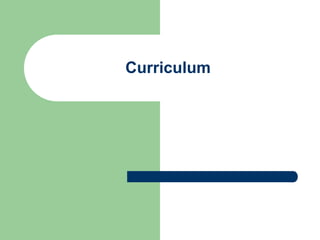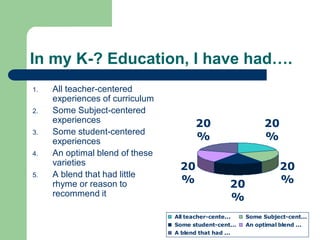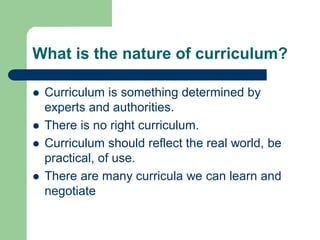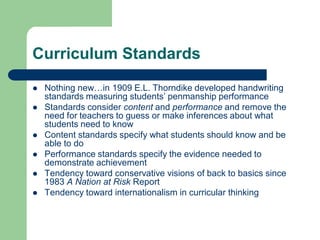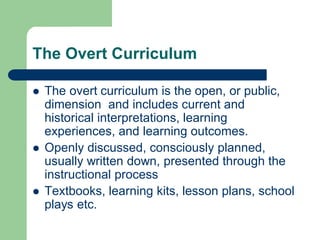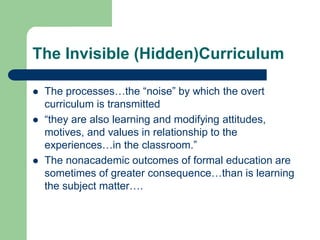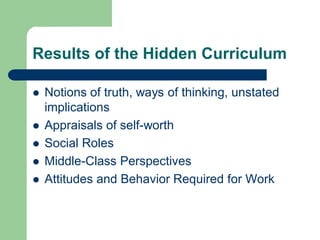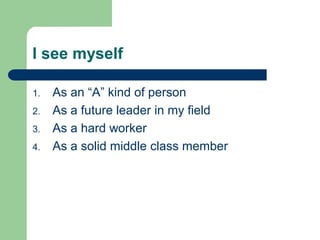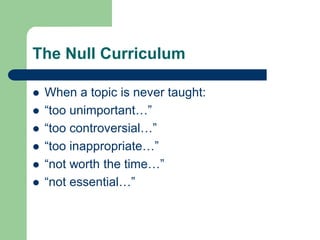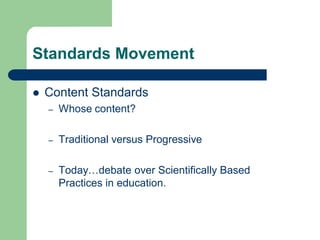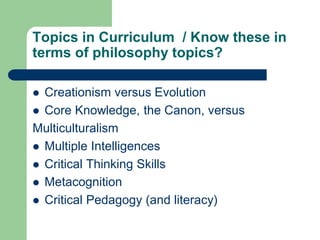The document discusses different perspectives on curriculum, including:
- Subject-centered, teacher-centered, and student-centered approaches
- Definitions that see curriculum as experiences guided by teachers, all learning opportunities, or a plan for all learner experiences
- Debates around who determines curriculum, whether there is a "right" curriculum, and whether it should reflect the real world
- Distinctions between the overt, hidden, and null curriculums and how they shape student learning and development
- Issues regarding what knowledge is included or excluded from curriculum and whose knowledge is prioritized
